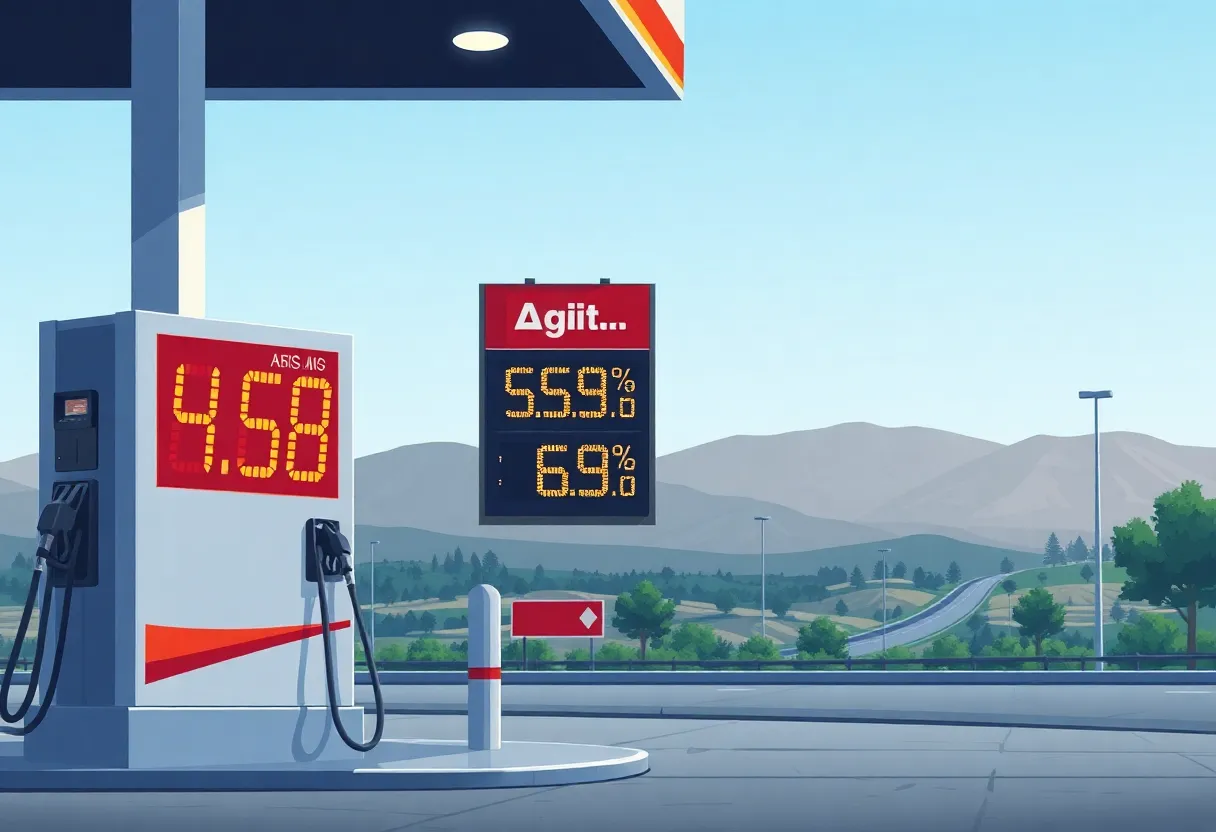News Summary
Starting July 1, California drivers will see a rise in gasoline prices due to new taxes and regulations. The excise tax is increasing by 1.6 cents per gallon, and the Low Carbon Fuel Standard could add an additional 65 cents per gallon. Estimates suggest gas could reach $6 per gallon, with some projections as high as $8 by 2026 amid geopolitical tensions and refinery closures. This situation has sparked criticism from lawmakers and initiated petitions against the new standards, as drivers brace for significant increases in fuel costs.
California drivers are set to face significantly higher gasoline prices beginning July 1, as new taxes and regulations come into effect. The state’s excise tax will increase by 1.6 cents per gallon, leading estimates to predict gas prices could reach as high as $6 per gallon. Furthermore, the implementation of the Low Carbon Fuel Standard program, which aims to reduce greenhouse gas emissions, could add up to 65 cents per gallon to the total cost at the pump. Consequently, drivers are expected to see their annual fuel expenses rise by between $600 to $1,000.
With ongoing tensions in the Middle East and the recent closure of two refineries, the combination of these factors may lead to even higher prices, with some experts forecasting that gas could soar to $8 per gallon by the end of 2026. This situation has prompted State Senate Minority Leader Brian Jones to initiate an online petition demanding the repeal of the Low Carbon Fuel Standard, which has already amassed over 25,000 signatures.
While Jones has projected significant increases in gas prices due to these changes, Governor Gavin Newsom’s office counters that the anticipated price rise from the new taxes and regulations will be more modest, estimated at just 5 to 8 cents per gallon. The Low Carbon Fuel Standard, approved by the state’s air resources board last November, is purportedly designed to implement stricter regulations on gas producers and transition towards cleaner fuels, although critics argue that the expected reductions in emissions may be overstated.
Currently, gasoline prices in California remain the highest in the nation, averaging $4.484 per gallon. Surveys conducted in San Diego on June 30 showed prices ranging from $3.99 to $5.39 per gallon, illustrating the already high cost of fuel in the state.
The previous Low Carbon Fuel Standard had added approximately 9 cents per gallon in costs, but the revised program is anticipated to add an estimated 5 to 8 cents more. Lawmakers, including Jones, have criticized the new standard as “price gouging” under Newsom’s administration. In response, new legislation introduced by Democratic lawmakers aims to cap fuel credit prices in order to prevent sudden increases at the pump, reflecting growing concern over the financial impact on California’s drivers.
Amid these rising prices, California’s Energy Commission is also actively engaged in discussions with potential buyers to maintain operational refineries in light of impending closures, further underscoring the state’s commitment to stabilizing fuel costs.
As California adopts these new regulations and implements tax increases, many drivers are bracing for significant changes to their budgets, as fuel expenses are projected to climb substantially over the coming years. Whether the anticipated price hikes manifest as predicted, or whether legislative measures can alleviate some of the financial burden, remains to be seen.
Deeper Dive: News & Info About This Topic
- LAist
- Wikipedia: California
- Politico
- Google Search: California gas prices
- CBS News
- Google Scholar: California Low Carbon Fuel Standard
- San Francisco Chronicle
- Encyclopedia Britannica: California gas prices
- SFGate
- Google News: California government fuel policy

Author: STAFF HERE MISSION VIEJO WRITER
The MISSION VIEJO STAFF WRITER represents the experienced team at HEREMissionViejo.com, your go-to source for actionable local news and information in Mission Viejo, Orange County, and beyond. Specializing in "news you can use," we cover essential topics like product reviews for personal and business needs, local business directories, politics, real estate trends, neighborhood insights, and state news affecting the area—with deep expertise drawn from years of dedicated reporting and strong community input, including local press releases and business updates. We deliver top reporting on high-value events such as Oso Fit 5K Fun Run and Community Health Fair, Walk Against Drugs & Community Fair, and National Night Out. Our coverage extends to key organizations like the Mission Viejo Chamber of Commerce and Providence Mission Hospital Mission Viejo, plus leading businesses in retail and education that power the local economy such as The Shops at Mission Viejo, Capistrano Unified School District, and Amazon Delivery Station. As part of the broader HERE network, including HEREAnaheim.com, HEREBeverlyHills.com, HERECostaMesa.com, HERECoronado.com, HEREHollywood.com, HEREHuntingtonBeach.com, HERELongBeach.com, HERELosAngeles.com, HERESanDiego.com, and HERESantaAna.com, we provide comprehensive, credible insights into California's dynamic landscape.


